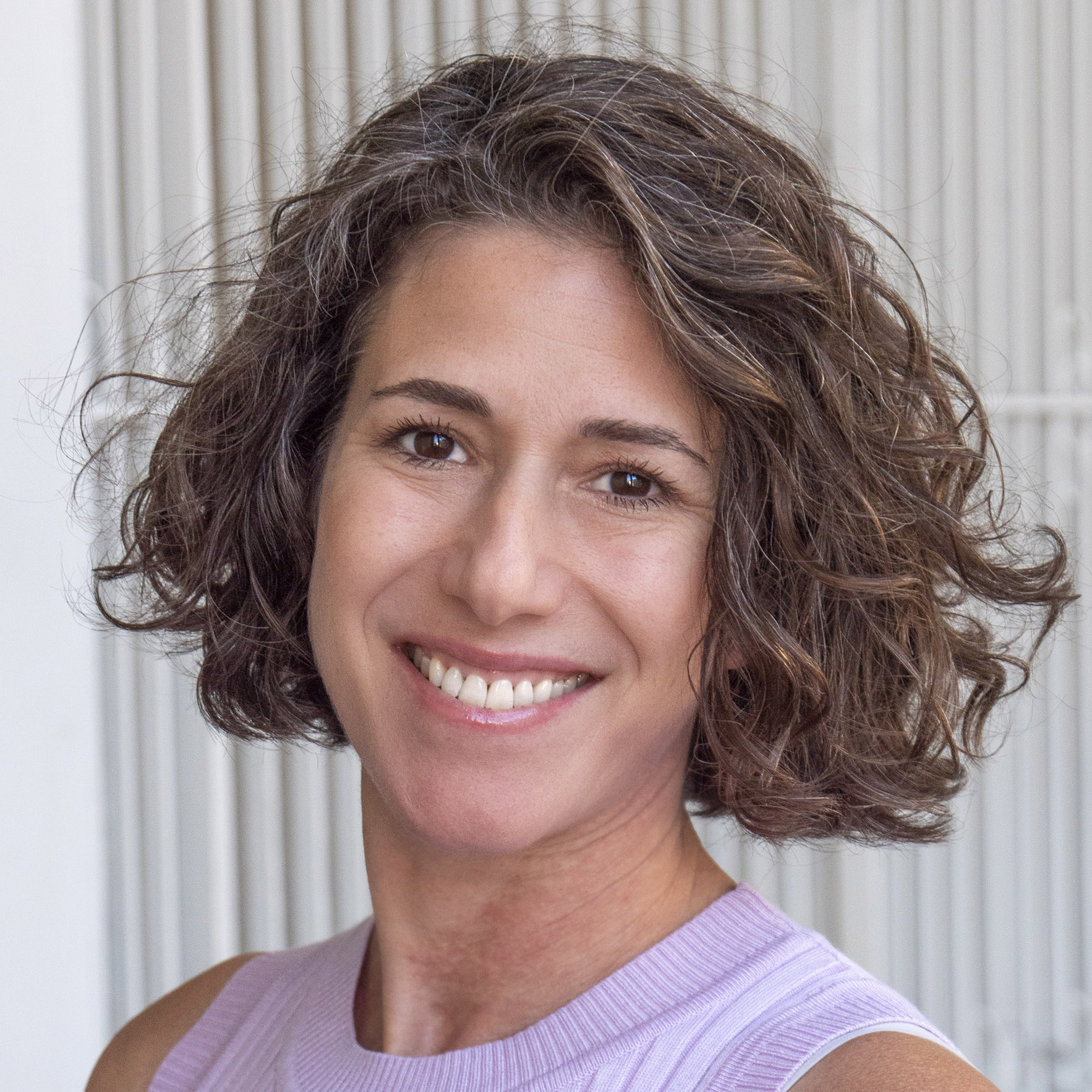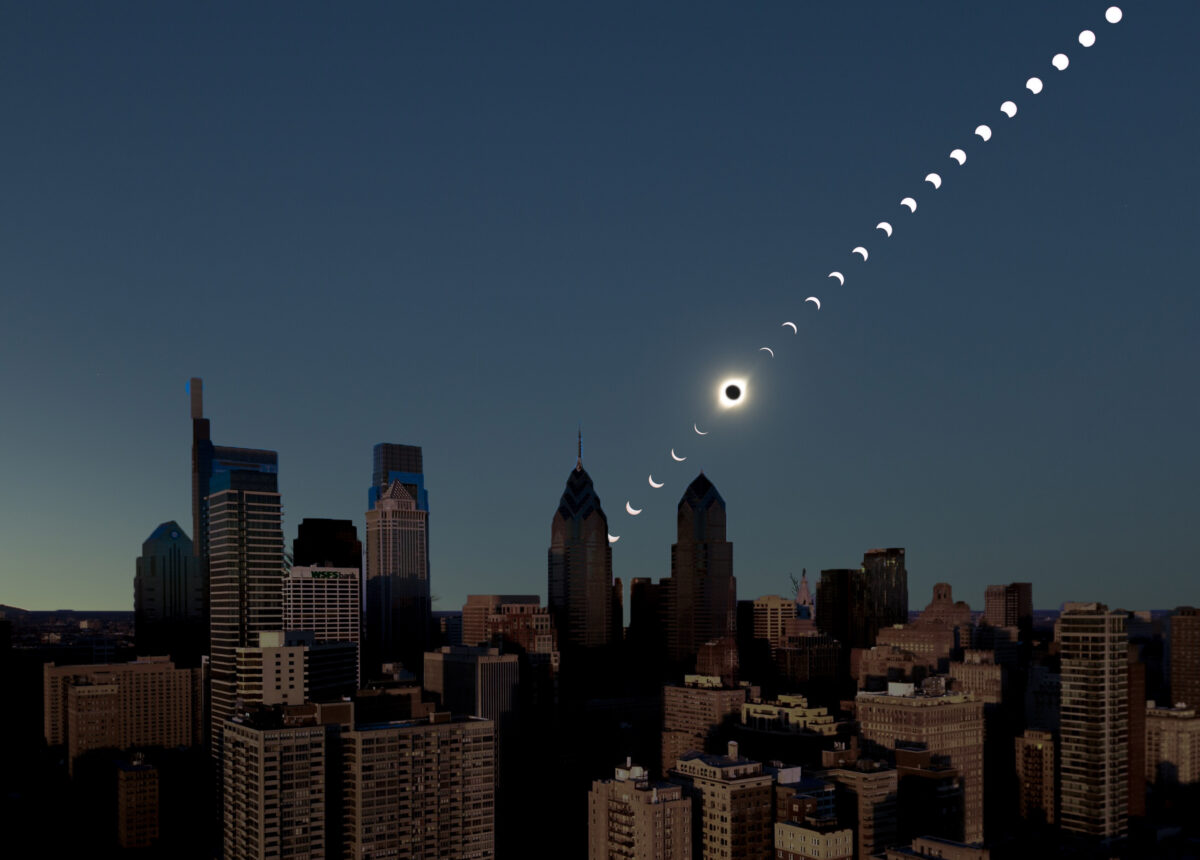Watching a total solar eclipse is something you never forget.
Philadelphians won’t quite get that chance this time around, but on April 8 residents will be able to experience the deepest eclipse the city’s seen in four decades.
A total solar eclipse — when the sun, moon and Earth align and the moon’s shadow blocks the sun’s light — happens about once every 18 months somewhere in the world.
Totality is determined by how much of the sun is blocked by the moon. You might remember the 2017 solar eclipse, when Philadelphia experienced 80% totality, according to Visit Philly.
This spring’s eclipse will reach 90% totality in Philadelphia, which is known as a deep partial solar eclipse. You have to go back to 1984 to find a deeper one in Philly — that year brought 95% totality. The next eclipse with this magnitude here won’t be until 2078.
Several science institutions around the city are planning watch parties, though some of the experts are heading out of town to catch the full effect (find details below).
Karen Masters, chair of the physics and astronomy department at Haverford College, has planned a trip to Texas so she can experience totality for the first time. Many of the college’s astronomers are planning to travel to totality, she said.
“I will be going to Texas where the weather is predicted to be particularly good,” Masters said. “I’m not going for any really sensible scientific reason, just because I have never properly experienced totality, and I’m told it’s amazing.”
If you are willing to travel, you don’t have to go quite that far: the April 8 path of totality will cross the upper edge of Pennsylvania — Erie is preparing for a tourism surge. The shadow will also cross over Oklahoma, Arkansas, Missouri, Illinois, Kentucky, Indiana, Ohio, New York, Vermont, New Hampshire and Maine.
Eye protection
If you’re planning to view the eclipse in some way, it is important to remember proper eye protection.
The popular cardboard glasses given out aren’t always foolproof, University of Delaware astronomy and physics associate professor Sally Dodson-Robinson told Technical.ly — if they don’t fit right or get a tiny hole, that could allow rays through.
If you want to be extra safe, NASA recommends purchasing solar-safe viewers directly from manufacturers, rather than from sites like Amazon or ebay. The American Astronomical Society has a list of suppliers with links to their websites to order.
Where to watch
Here are some local events offering safe ways to view the eclipse and learn about the science behind it.
Have another we should add? Let us know.
The Franklin Institute is hosting a free viewing party from 1:30 to 5 p.m. on the front steps of the museum on April 8. Attendees will be able to view the solar eclipse through the Franklin Institute’s solar filter tents and telescopes. Eclipse specialists will be on site to answer questions and there will be interactive activities to explain the science behind eclipses. You can also purchase solar eclipse viewing glasses at the museum’s store.
The Wagner Free Institute of Science is planning a viewing event as well. The Institute plans to hand out eclipse viewing glasses and teach attendees how to make their own pinhole projectors to view the eclipse. It will also have a viewing session for NASA’s livestream of the eclipse.
Temple University’s Department of Physics is hosting a viewing party to teach about the science behind eclipses, and offer viewing through telescopes and protective eyewear.
Haverford College does not have any public viewing events planned for this eclipse, but the college does plan to invite staff, faculty and students to its Strawbridge Observatory. It will hand out eclipse viewing glasses and collect them back after the eclipse to donate to Astronomers Without Borders, an organization focused on connecting people through astronomy, Masters said. Astronomers Without Borders will distribute the glasses to other countries with upcoming eclipses.
What Philly will see
The eclipse is expected to start at 2:08 p.m., reach maximum coverage at 3:23 p.m. and complete its path at 4:35 p.m.
Here’s a graphical simulation of how it may look in Philadelphia.
Sarah Huffman is a 2022-2024 corps member for Report for America, an initiative of The Groundtruth Project that pairs young journalists with local newsrooms. This position is supported by the Lenfest Institute for Journalism.
Before you go...
To keep our site paywall-free, we’re launching a campaign to raise $25,000 by the end of the year. We believe information about entrepreneurs and tech should be accessible to everyone and your support helps make that happen, because journalism costs money.
Can we count on you? Your contribution to the Technical.ly Journalism Fund is tax-deductible.
Join our growing Slack community
Join 5,000 tech professionals and entrepreneurs in our community Slack today!

The person charged in the UnitedHealthcare CEO shooting had a ton of tech connections

The looming TikTok ban doesn’t strike financial fear into the hearts of creators — it’s community they’re worried about

Where are the country’s most vibrant tech and startup communities?



